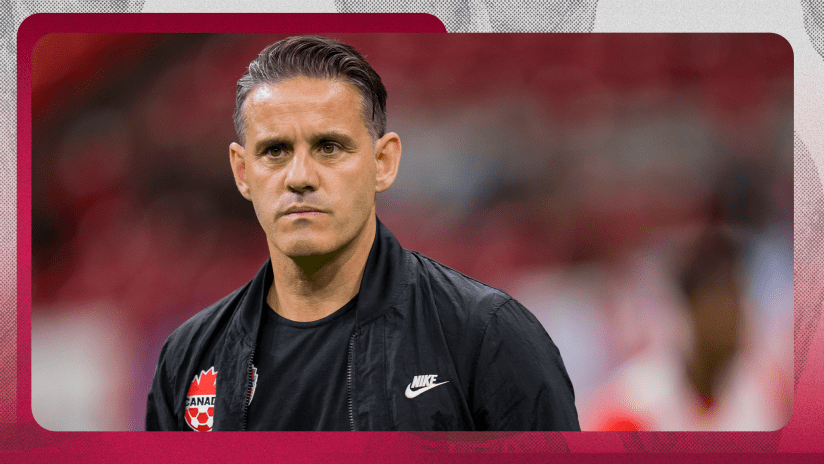In hindsight, perhaps Canada drew the toughest group at the 2022 FIFA World Cup.
Two semifinalists, Croatia and Morocco, have emerged from Group F and will look to dethrone traditional powerhouses Argentina and France later this week, possibly setting up a rematch-style final on Dec. 18. Les Rouges’ other opponent was Belgium, which entered the tournament at No. 2 in the FIFA World Rankings and boasted a golden generation with world-class stars.
After Canada exited Qatar with a 0W-2L-1D record and minus-5 goal differential, head coach John Herdman feels games of that caliber are a must moving forward.
“We have to play big nations – big games and feel what it's like to be under the pressure of these quality players," Herdman said in a CBC interview.
While booking Canada’s first men’s World Cup trip in 36 years, they had scant opportunities against countries in the top tier of international soccer. Their qualification quest started against Concacaf minnows like the Cayman Islands and Aruba, then they topped the Octagonal ahead of the US and Mexico.
That’s all well and good, but scheduling limitations meant Canada weren’t tested often enough at a World Cup level – pre-tournament friendlies against Japan and Uruguay notwithstanding.
"We needed more games against that type of opponent,” Herdman said. “One error [can] lead to real punishment. I think we needed to feel some of that punishment prior to coming into the World Cup and we hadn't.”
Now, Canada turn focus to co-hosting the North America 2026 World Cup. The working assumption is they’ll automatically qualify, as host nations traditionally do, so they’ll need to arrange top-tier friendlies/tournaments aside from the Gold Cup and Nations League. There are reports they may participate in Copa America 2024.
Further, Herdman said they’re focused on recruiting dual-national players. Canada have strength in diversity, with superstars Alphonso Davies, Jonathan David and Stephen Eustáquio all eligible to represent other nations.
“We laid the foundation for 2026 and for now, the next quadrennial is about really pushing hard to recruit those players that are on the bubble, on the dual-passports,” Herdman said. “We gave them a reason to believe that Canada can compete now and that we are a football nation."
Herdman also stressed the continued need for Canada’s players to enter “tier one” leagues, like how CF Montréal have recently transferred defender Alistair Johnston (to Scotland’s Celtic FC) and midfielder Ismael Kone (to England’s Watford FC). More may follow suit after Canada’s performances in Qatar changed perceptions.
After some “unforgettable moments” in the 2022 cycle, Herdman and his players look ahead.
“When this country opens its doors to the rest of the world, we’ve got to be ready,” Herdman said. “We have to come together collectively now in the spirit of what we’ve achieved here and build.”














